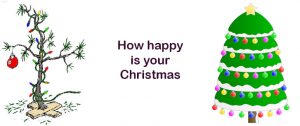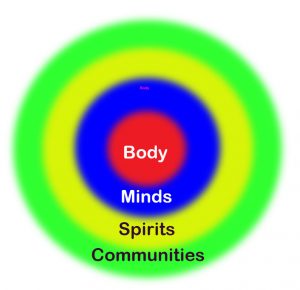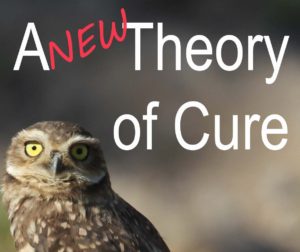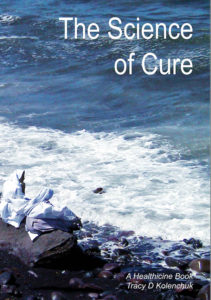 In this, the Christmas season, we often take time to think about happiness. Some people are very happy at Christmas, some – not so much, even some who are happier all year round. Christmas happiness is different. How can that be?Measure your Christmas Happiness.
In this, the Christmas season, we often take time to think about happiness. Some people are very happy at Christmas, some – not so much, even some who are happier all year round. Christmas happiness is different. How can that be?Measure your Christmas Happiness.
What is it about happiness? Sometimes, it seems the more we pursue it, the faster it runs away. We capture it for a moment, and then it’s gone. Some people never seem to be happy, while others appear always to be in the bliss of ignorance. Most of us, are floating, somewhere in-between. Seeking happiness, sometimes finding it, sometimes not.
What is happiness? What are happinesses? Wiki offers “Happiness is a mental or emotional state of well-being defined by positive or pleasant emotions ranging from contentment to intense joy.” That might seem pretty broad – happiness can be a lot of things. But actually, it’s too narrow. Happiness is a mental or emotional state, yes, but it can also be physical healthiness – or even community healthiness, community spirit. When you have a toothache, or arthritis, it’s not just your mind that is unhappy – your body is complaining too.
This diagram represents the circles of healthiness of an individual. Each person has one body, but can be of several minds, has many spirits that ebb and flow throughout their days and their lifetime – and participates in many communities. The circles are fuzzy – actually fuzzier than the diagram. In team sports for example, when “in the zone”, the line between body and community can merge completely.
H ealthiness, and happiness too, exists in every circle – body, minds, spirits, and communities.
ealthiness, and happiness too, exists in every circle – body, minds, spirits, and communities.
We might pretend that the happinesses of Christmas are about getting presents, extensions of the body, our physical self, but no. The happinesses of Christmas are spirit and community happiness.
Christmas has an interesting effect on community happinesses. When Christmas comes, we have to choose which community to be with. By choosing, we must also exclude some of our communities. We can, if we try, find many ways to include more of our communities, by travelling and spreading Christmas across many days – but some people limit their communities at Christmas. Some people deliberately exclude some, or a large number of their communities at Christmas – and their Christmas happinesses suffer.
We can each choose to involve more, or fewer of our communities at Christmas – but our communities, and the people in those communities, are choosing as well. When others exclude us, it’s harder to work on our own community happinesses. There are two sides to any community happiness – one of which we cannot control.
The Oxford Happiness Questionaire is a set of 29 questions designed to measure happiness, or ‘psychological well-being’. They are not sorted by body, minds, spirits, and communities – but clearly refer to each area. From them, we can create some sample groupings of their measures;
Body: feeling healthy, energy levels, rested, alertness, attractiveness,
Mind; rested, alertness, attractiveness, make decisions, get things done, good memories, able to find beauty, optimism, satisfaction, empowered, rewarded by life, and influence events,
Spirit: happy, pleased, laughter, joy, elation, optimism, satisfaction, empowered, rewarded by life,
Community: interested in people, cheerful, fun, warm feelings towards others, .
Note: there is overlap, or fuzziness, as in the coloured diagram. Many questions refer to different layers of happiness at the same time. The Oxford Happiness quiz appears to put the most attention on mental and spiritual happiness, with much less emphasis on physical and community happiness. On the other hand, painkillers are designed to improve physical healthiness, while we use alcoholic drinks can improve social healthiness.
The World Happiness Report measures and compares happiness of people around the world. You can view their 2016 report on world happiness if you are interested in learning more. They define happiness as ‘subjective well being’, and their measures of happiness seem to be, like the Oxford Happiness Questionnaire, mostly based on mind and spirit happinesses. The Authentic Happiness website, managed by the Positive Psychology Centre, offers many quizzes and tools to measure different aspects of happiness, but does not distinguish well between body happiness, mind happiness, spirit happiness – and does not pay much attention to community happiness at all. Most of their focus appears to be on ’emotional’ aspects of happiness – which in healthicine is ‘spirit happiness’.
Complete happiness requires happiness in every layer: body, mind, spirit, community. Is it possible to feel happy if the body is unhealthy? Actually it is. Drug addicts sometimes work so hard to find happiness – that they can kill their bodies. To the outsider, it’s a false happiness, but to the addict, it might be the best they can do at the time.
We can see false happiness when we raise one layer above the others artificially. However, this technique can be useful, and can – over a short period of time, actually make us happier. When we hurt our physical body, get a tooth pulled, or undergo a surgery, a painkiller, or a placebo, can provide relief and helps us recover.
On the other hand, sometimes a powerful happiness technique becomes addictive, leading to unhappiness that spreads throughout the entire person. Too much team spirit – community happiness, can lead to loss of self, loss of mental and emotional happiness. Constant attempts to find joy – emotional or spirit happiness can lead to seeking or purchasing more and more things – sacrificing other happiness of the body, mind, and community. Being too rational is a common road to unhappiness – it’s always easier to criticize, and to rationalize criticism, than it is to understand, accept and be grateful.
Physical happiness comes from a healthy body. Healthy bodies come from healthy nutrition and movement. Dead things aren’t healthy, they don’t move. When you stop moving, you lose healthiness, and happiness too. When you move your body, happiness increases.
Pain resides in mind and body – and intrudes into our spirits and communities. Empathy includes community pain and community pleasure – community happiness. Pain can be real, physical, but our minds, spirits, and even our communities can create it, magnify it, and diminish it. Seeking happiness in painkillers – drugs – can lead to an empty happiness, that feels great, sometimes even as the body stops moving and dies. Sometimes, pain requires rest, to facilitate healing. But often, pain, and healing requires movement. When I walk my dog – I feel no pain. Life, health, and happiness are not simple.
The mind, like the body, is happy when it is active, happiest when it is “in the flow“. “I’m bored!” is the classic adolescent expression of unhappiness, often expecting something from the outside to make them happy. But mental happiness comes from within. We can exert power over our mind, by planning specific actions. We can enjoy joy more – by anticipating it. Simple acts of gratefulness can create and improve mental happiness.
The line between mental happiness and spirit happiness is the line between your rational and your emotional self. Like all boundaries, it is fuzzy. Do you think you are happy (minds) do you feel happy (spirits). A reliance on one to the exclusion of the other leads to a happiness imbalance – and to unhappiness.
At Christmas time the happinesses and the unhappinesses that we notice most are those of community. Christmas brings families together, whether they are strongly religious or not. Those with strong religious beliefs return to our religious communities. Community happiness is a measure of the healthiness of our selves – body, mind, and spirit – in our communities, and also the healthiness of our communities towards each other and towards ourselves.
People with stronger, healthier communities, have more community happiness. Much of the year, we live independent lives, but at Christmas, we choose to make our communities more important. It is perhaps ironic that Christmas is often all about getting gifts for the ‘body’, the personal self – but these gifts do little for community healthiness. Giving, on the other hand, can benefit community healthiness. But not just gifts. The most powerful gifts for community healthiness are ourselves. When we give our time, our bodies, our minds, and our spirits to our families, and to other communities, we improve our own happiness and the healthiness and happiness of the community.
It is possible to use drugs to feel happy, but many drugs cause the person to retreat from community, from society – resulting in a physical and mental excess of happiness, but a severe loss of spirit and community happiness. Others, like alcohol, can enhance spirit and community happiness, but if used excessively they result in poor physical and mental health, poor physical and mental happiness, leading to poor community happiness.
Is it possible to be ‘too happy’? Actually, yes it is. It is possible to rely too much on physical (body) happiness, or mind (rational) happiness, or spirit (emotional) happiness, or social (community) happiness, leading to happiness imbalances – unhappiness. If you are too happy, Pollyanna happiness, you have two problems. First – the only way is down. Every action you take might make you less happy. But perhaps more important, if you are too happy – you have nothing to strive for, and lose those aspects of happiness.
Analgesics, antidepressants, alcohol, and more. Sometimes, they are effective – especially in the short term, but in the long term they can easily lead to addiction, danger, and death.
What about placebos? Can placebos make us happier – better than drugs? The main benefit of a placebo is no side effects. People are much less likely to become addicted to a placebo – and if so, what’s the harm? But the definition of a placebo is weak, and many real actions that improve happiness might seem to be nothing but a placebo. Being grateful is a powerful tool to improve happiness. It’s not a drug. Is it a placebo? No. A placebo is something that has no real effect. Prayer might seem to be a placebo, but it can lift the spirits – and in a church it can also feed community happiness.
Is unhappiness the opposite of happiness? It can be, but that’s a simplistic view. Unhappiness can also be the absence of happiness, or a severe imbalances in happiness – caused by excessive happiness in one area. Unhappiness is opportunity for improvement in happiness – just as unhealthiness is an opportunity for improvements in healthiness.
By separating happiness, and unhappiness into body, mind, spirit, and community, we gain more insight into how to improve our happiness. Happiness in the body is improved or gained by actions that improve the healthiness of the body. A healthy body is a happy body. Happiness of the mind can be improved by directed positive thinking, by removing mental roadblocks. Happiness of spirit is central – and can be improved by many techniques that improves happiness, from meditation to play. Community happiness is improved by active participation in your communities, and by working to make your communities happier.
At present, there are no scientific tools to measure your level of Christmas Happiness, so I’ve created one in EXCEL, and you can download it here:
to your health, tracy
Founder: Healthicine


